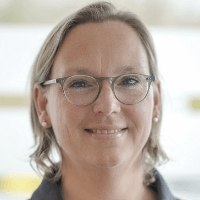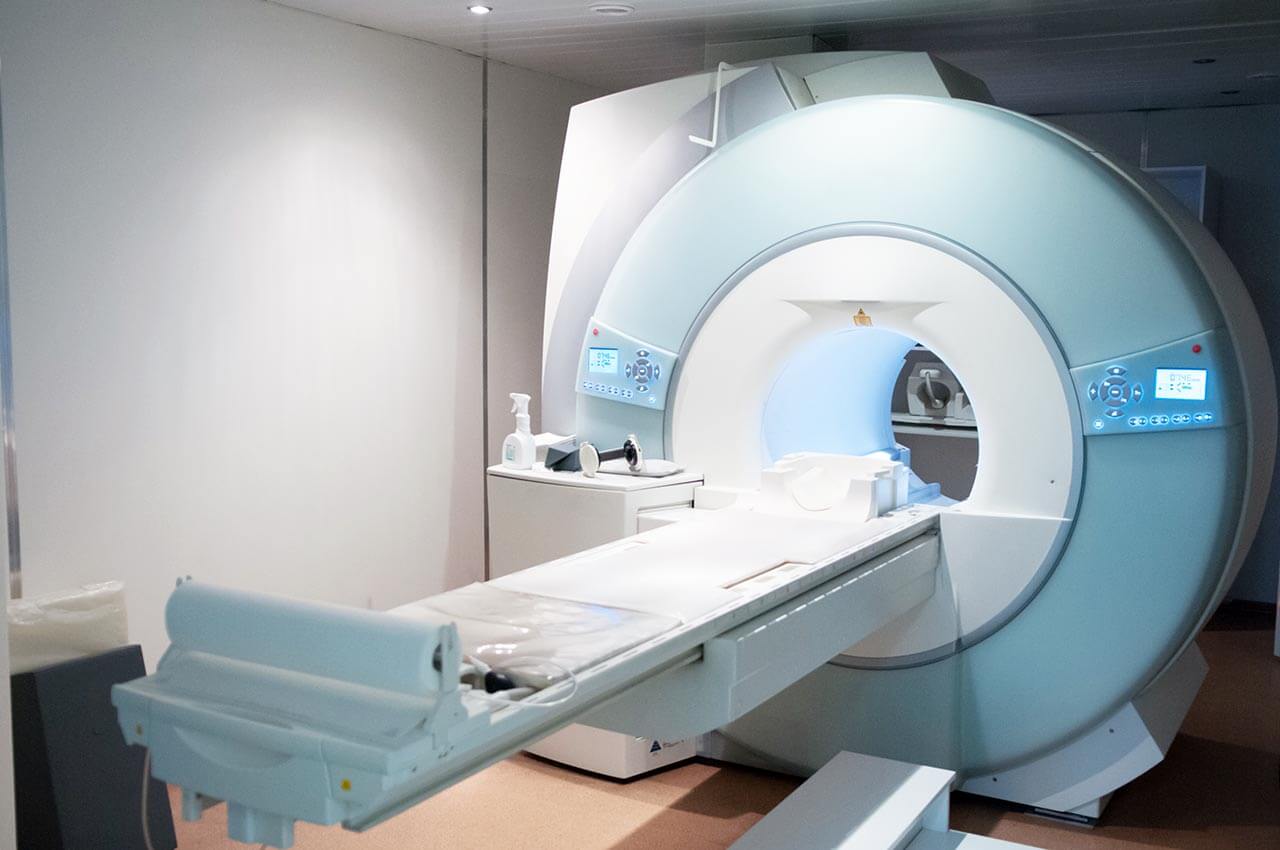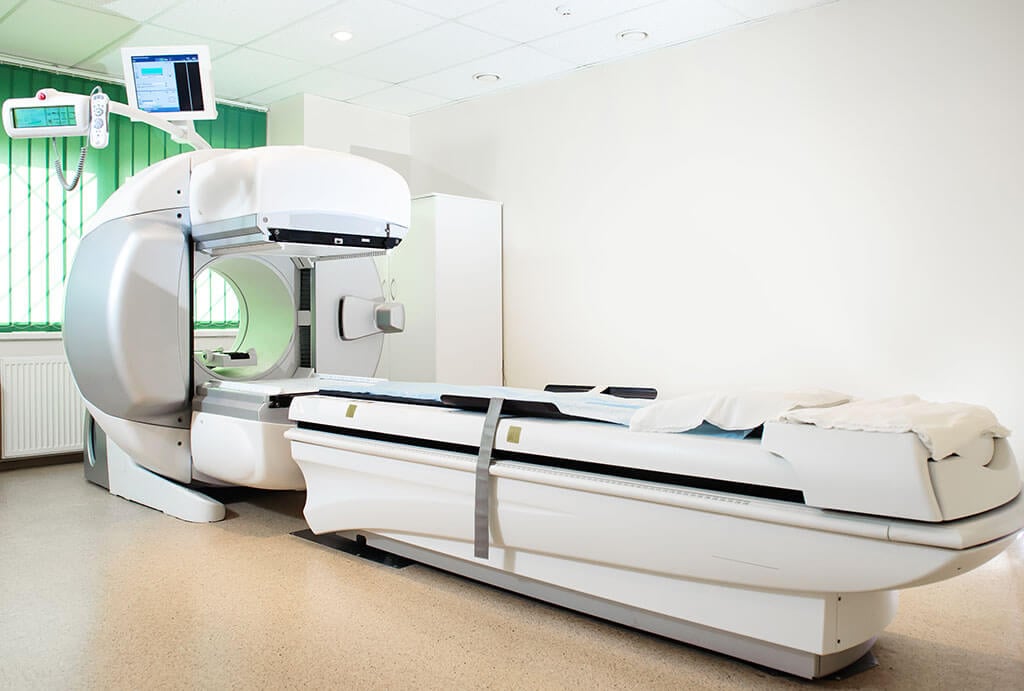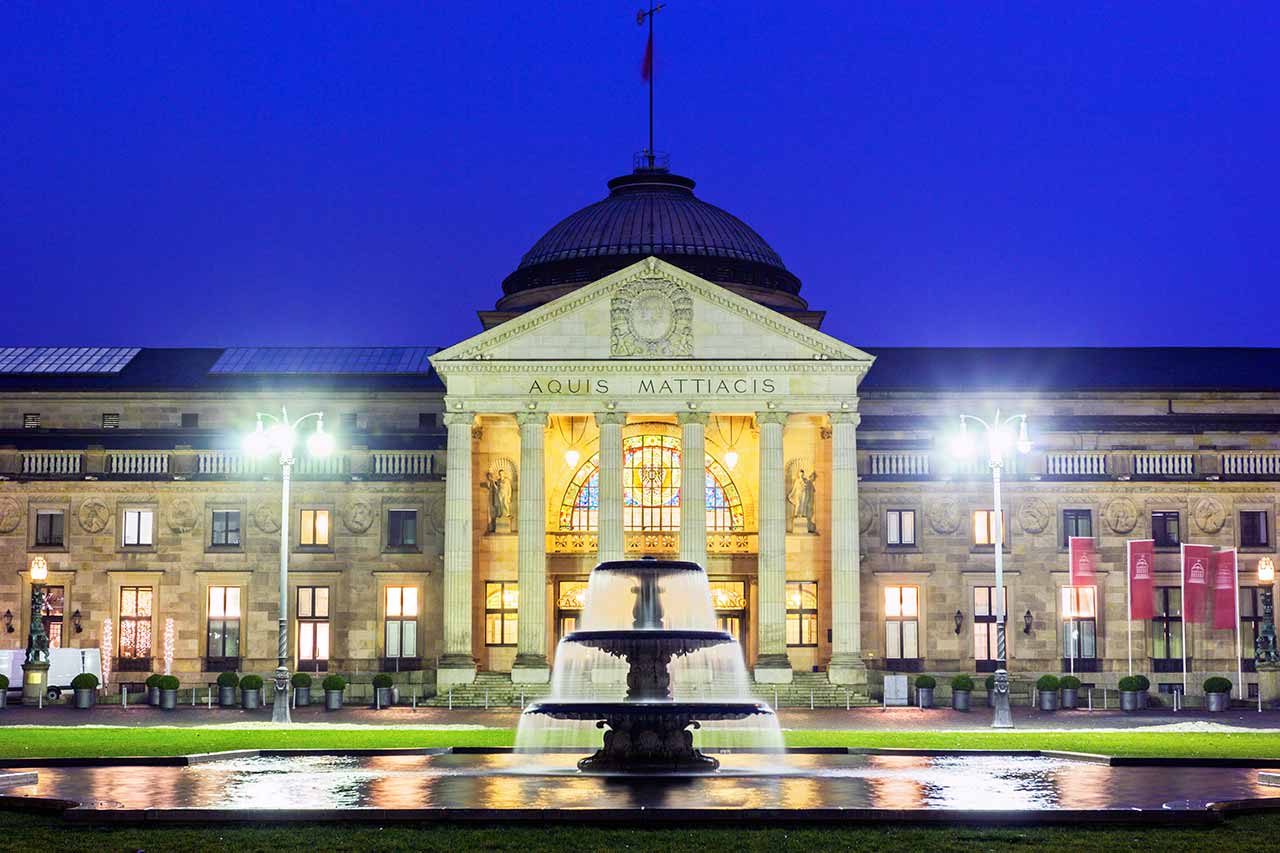
The program includes:
- Initial presentation in the clinic
- case history collection
- general clinical examination
- laboratory tests:
- complete blood count
- general urine analysis
- biochemical analysis of blood
- TSH-basal, fT3, fT4
- tumor markers (thyroglobulin (TG),
TG antibodies (TgAb)) - indicators of inflammation
- indicators of blood coagulation
- ultrasound scan of the thyroid gland
- thyroid scintigraphy
- radioiodine therapy
- symptomatic treatment
- cost of essential medicines
- nursing services
- stay in the hospital with full board in 2-bed room
- elaboration of further recommendations
How program is carried out
During the first visit, the doctor will conduct a clinical examination and go through the results of the available diagnostic tests. After that, you will undergo the necessary additional examination, such as the assessment of liver and kidney function, ultrasound scan of the thyroid gland and lymph nodes of the neck, thyroid scintigraphy. This will allow your doctor to assess how effective radioiodine therapy will be and how well you will tolerate it. In addition, the doctor will calculate the dosage of the drug you need.
Radioiodine therapy with I-131 includes oral administration of the drug. You will take 1 to 4 radioactive iodine capsules or drink about a teaspoon of liquid with radioactive iodine. You will take the drug in your ward, without visiting the manipulation room or operating room.
After taking radioactive iodine, you will stay in your ward for 24 to 48 hours. The next morning after the procedure, the dosimetrist will determine the amount of radiation in your body. If the amount is low, you will be allowed to leave your ward and will be discharged from the hospital. If the amount is high, then the dosimetric control will continue for another day, until a low amount of radiation in your body is detected.
The isotope I-131 can accumulate not only in the thyroid gland, but also partially in the salivary glands. This can cause dry mouth. To get rid of this side effect, you will dissolve sour candies, as this stimulates the work of salivary glands.
The drug is quickly excreted by the kidneys, and after 48 hours you will no longer pose a danger to others. After the procedure, you should drink at least 1 glass of water per hour and visit the toilet regularly. This will allow you to quickly remove radioactive iodine from the body. Food can be usual, without excess iodine in the diet.
During these 48 hours, you can read, use a mobile phone, tablet or computer. All these devices will not be a source of radiation in the future.
Control examination includes scintigraphy, which is performed 7-10 days after radioiodine therapy. Based on the results of the examination, the doctor will determine how well the cells of the thyroid gland (or cancer metastases) have accumulated radioactive iodine. In a few weeks after the procedure, you will have a control blood test for thyroid hormones. In the future, you will visit an endocrinologist regularly.
Required documents
- Medical records
- MRI/CT scan (not older than 3 months)
- Biopsy results (if available)
Service
You may also book:
 BookingHealth Price from:
BookingHealth Price from:
About the department
The Department of Nuclear Medicine at the DKD HELIOS Clinic Wiesbaden offers the full range of diagnostic and therapeutic services in its area of expertise. Medical care is provided on an outpatient basis. The doctors of the department have at their disposal an advanced technical base, including a device for a combined examination using positron emission tomography and computed tomography (PET/CT), four gamma cameras, three of which allow for single-photon emission computed tomography (SPECT), and two ultrasound machines. It is worth noting that in 2009 the department became the first medical facility in the Rhine-Main region to install a PET/CT system. This device allows the doctors to accurately detect tumors of various locations and diagnose Alzheimer's disease. The department's doctors specialize in radioiodine therapy for the treatment of various thyroid diseases. This type of treatment is highly effective and is an excellent alternative to surgery. The patients' health is in the safe hands of a highly qualified team of doctors with many years of clinical experience, which guarantees an impeccable quality of both diagnostics and treatment. The department is headed by Dr. med. Corinna Müller.
One of the important methods of nuclear diagnostics is combined positron emission tomography and computed tomography (PET/CT). This type of diagnostic examination is of particular value when diagnosing oncological diseases and neurological disorders. The uniqueness of the diagnostic procedure lies in the fact that it allows doctors to simultaneously identify changes at the cellular level and assess the structure of the examined organ. The department also provides whole body PET/CT with 18F-fluorodeoxyglucose (18F-FDG). The radiopharmaceutical 18F-fluorodeoxyglucose is universal, since it is absorbed by all cells. In its structure, 18F-FDG is close to ordinary glucose. Due to a more active metabolism, tumor cells accumulate the drug faster than healthy cells, so they are clearly visible during scanning. Typically, whole body PET/CT is indicated for the patients suffering from cancer. The aim of the diagnostic examination is to detect metastases and primary tumor foci, determine the stage of the tumor process and plan treatment tactics.
Single photon emission computed tomography (SPECT) is also an indispensable method of nuclear diagnostics. The value of the SPECT study lies in the high sensitivity of this technique. It allows obtaining functional images that reflect the vital processes of organs and tissues at the molecular level in real time. To carry out the diagnostic procedure, the patient is injected with a small dose of a radioisotope, which actively accumulates in the organs and tissues of the human body and is incorporated into the cellular metabolism. Immediately after the introduction of the radioisotope or after a certain period of time, the patient will be scanned with a gamma camera. The department's doctors mostly carry out single-photon emission computed tomography as a comprehensive examination for suspected cancer, including for detecting metastases in sentinel lymph nodes and skeletal bones, as well as for diagnosing diseases of the neurological spectrum, heart and kidney diseases. Like PET/CT, SPECT is an informative diagnostic examination, with the help of which doctors can obtain comprehensive clinical data, make an accurate diagnosis and develop the most effective treatment regimen.
An important clinical focus of the department's specialists is radioiodine therapy for various thyroid diseases. The therapeutic technique is effective in the treatment of Graves' disease, various forms of hyperthyroidism, thyroid adenomas and some types of thyroid cancer (papillary or follicular cancer). The essence of the therapeutic procedure is the introduction into the patient's body of an artificial radioactive iodine isotope, I-131. The therapeutic effect is based on the fact that iodine is required for the synthesis of thyroid hormones, and therefore actively accumulates in its cells. Prior to radioiodine therapy, the patient undergoes special preparation, the purpose of which is to increase the levels of thyroid-stimulating hormone (TSH), which enhances the uptake of iodine by the thyroid gland. The dosage of the drug containing radioactive iodine is determined for each patient individually. To assess the effectiveness of therapy after the completion of the course of treatment, doctors conduct scintigraphy and a blood test to determine thyroid hormone levels.
The department's key clinical focuses include:
- Diagnostics
- Combined positron emission tomography and computed tomography (PET/CT)
- Diagnostics of oncological diseases
- Diagnostics of neurological disorders
- Diagnostics of heart diseases
- Single-photon emission computed tomography (SPECT)
- Diagnostics of oncological diseases
- Diagnostics of neurological disorders
- Diagnostics of heart diseases
- Diagnostics of kidney diseases
- Skeletal bone scanning to detect metastases
- Sentinel lymph node scanning to detect metastases
- Combined positron emission tomography and computed tomography (PET/CT)
- Treatment
- Radioiodine therapy for thyroid diseases
- Other diagnostic and therapeutic options
Curriculum vitae
Higher Education and Professional Career
- Since 2012 Chief Physician of the Department of Nuclear Medicine at the DKD HELIOS Clinic Wiesbaden.
- 2008 Physician in Dr. Maier's Private Practice in Nuclear Medicine, Wiesbaden.
- 2005 - 2008 Physician in the Department of Nuclear Medicine at the University Hospital Mainz.
- 2001 - 2004 Physician in Dr. Maier's Private Practice in Nuclear Medicine, Wiesbaden.
- 1999 - 2000 Internship in the Department of Internal Medicine at the St. Vincenz Hospital in Mainz.
- 1993 - 1999 Study of Human Medicine at the Faculty of Medicine of Johannes Gutenberg University Mainz.
Photo of the doctor: (c) DKD Helios Klinik Wiesbaden
About hospital
The DKD HELIOS Clinic Wiesbaden has long made a name for itself in the international medical arena by introducing an optimal model of medical care, combining the use of the most advanced medical technologies, the experience of highly qualified doctors and impeccable quality of patient care. The medical facility first opened its doors to patients in 1970. The world famous Mayo Clinic Rochester in America served as a model for the design of the medical complex. Since the foundation of the clinic, the main direction of its activities has been comprehensive diagnostics of complex diseases integrated into an interdisciplinary treatment concept. Today, an integral part of clinical practice is also preventive diagnostics aimed at the early detection of pathological changes in the human body. In recent years, the clinic has been actively developing the direction of surgery, in which it has significantly succeeded. The clinic enjoys a reputation as one of the best medical facilities in Europe in the field of endocrine and colorectal surgery, as well as in hernia repair surgery.
The clinic has 24 specialized departments. Each of them offers a team of experienced doctors, whose main value is the patient's health. The work of all doctors of the medical facility is based on a single credo – "Treat not a disease, but a patient". According to this belief, the course of treatment should be as individual as possible, taking into account the patient's physical characteristics, lifestyle, diet, emotional state, etc.
The clinic's bed capacity consists of 138 inpatient beds and 60 beds in a day hospital. Many diagnostic and therapeutic procedures are performed on an outpatient basis. The diagnostic and treatment rooms, like the operating rooms of the clinic, are equipped with state-of-the-art technology to ensure the observance of strict hygiene and safety standards. The advanced medical equipment allows detecting the slightest changes in the functioning of organs and their structure with impeccable accuracy, thanks to which doctors can diagnose complex pathologies at the very early stages. This greatly increases the chances of a successful cure.
The location of the clinic in Wiesbaden, known as one of the oldest thermal spas in Europe, is another pleasant advantage for the patients. Arriving at the clinic for a preventive diagnostic examination, one can improve his health in the healing thermal springs, as well as enjoy the sightseeing of historical monuments. The medical center is located in the immediate vicinity of the English style Spa Park founded in the distant 1852, so in the free time from medical procedures one can take a pleasant walk in the beautiful park.
Photo: (с) depositphotos
Accommodation in hospital
Patients rooms
The patients of the DKD HELIOS Clinic Wiesbaden live in comfortable single and double rooms. Each patient room has an ensuite bathroom with shower and toilet. The standard patient room furnishings include an automatically adjustable bed, a bedside table, a table and chairs, a TV and a telephone.
The clinic also offers enhanced comfort rooms with spacious bathrooms, which additionally include a large mirror, hairdryer, changeable towels and toiletries. These patient rooms also have a safe for storing valuables, a free minibar with soft drinks, a flat-screen TV with satellite channels and free Wi-Fi.
Meals and Menus
The patients of the clinic are offered tasty and balanced three meals a day: breakfast, lunch and dinner. If for some reason you do not eat all the foods, you will be offered an individual menu. Please inform the medical staff about your dietary preferences prior to treatment.
The clinic also has a cozy cafe where one can taste delicious snacks, salads, main courses and desserts. One can also enjoy aromatic coffee, delicious tea and soft drinks in the cafe.
Further details
Standard rooms include:
Religion
The religious services are available upon request.
Accompanying person
During the inpatient program, the accompanying person can live with the patient in a patient room or a hotel of his choice. Our managers will help you choose the most suitable option.
Hotel
During the outpatient program, the patient can stay at the hotel of his choice. Our managers will help you choose the most suitable option.





